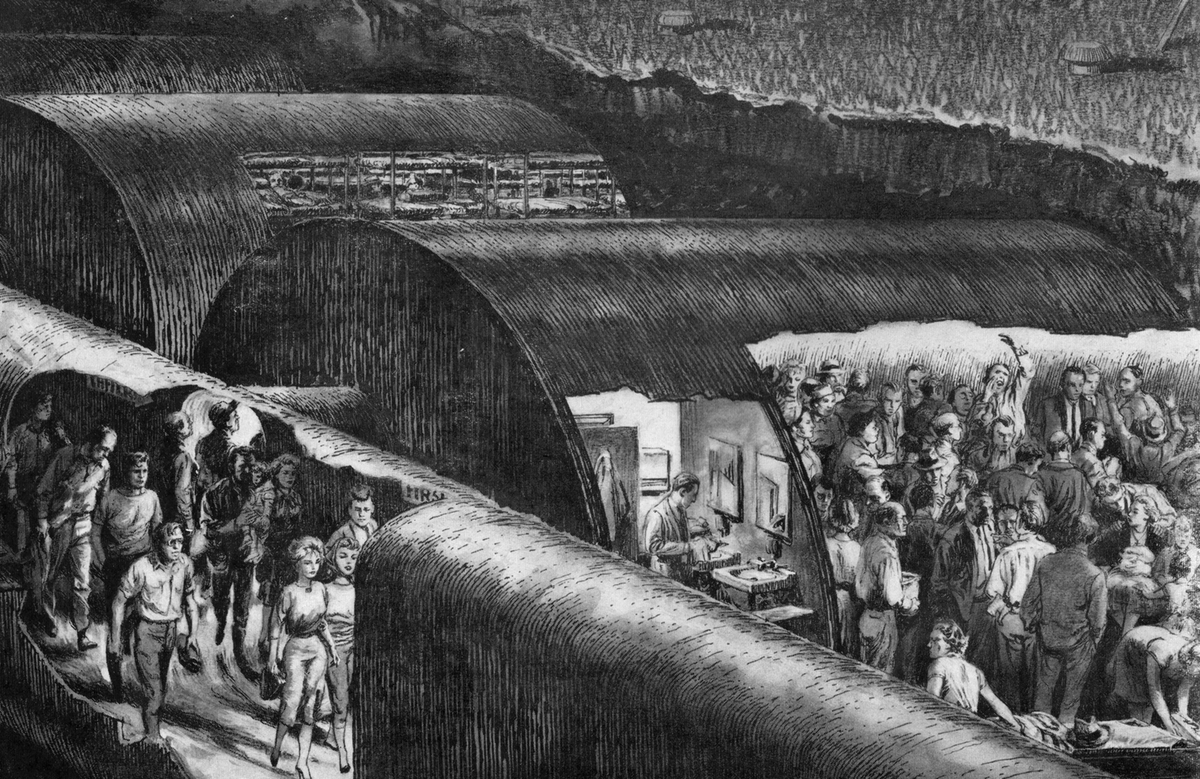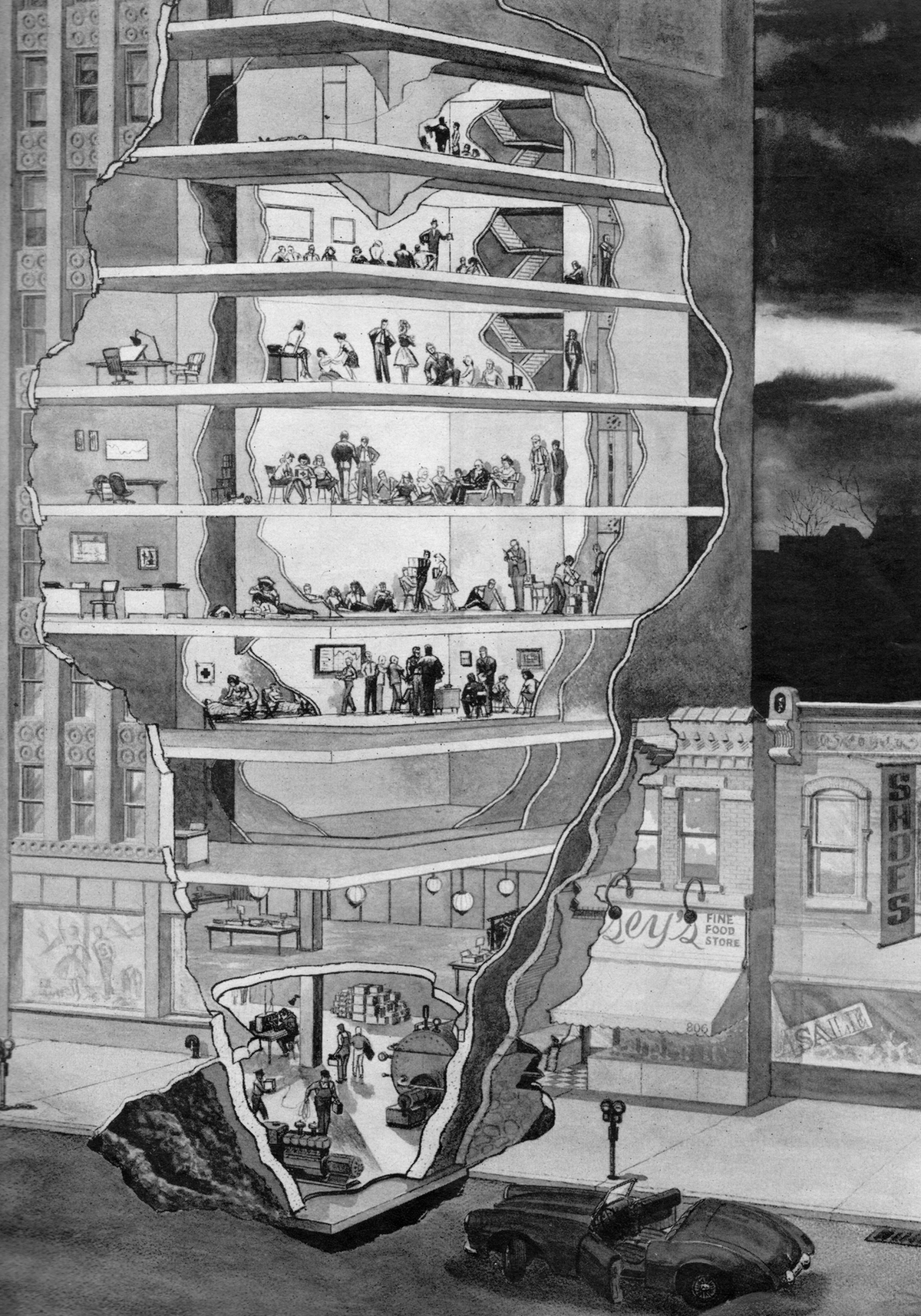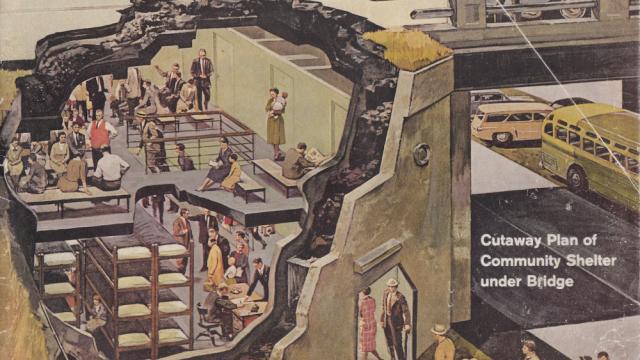“EVERYBODY’S TALKING ABOUT SHELTERS” proclaimed Life magazine in its 12 January 1962 issue. Specifically, everybody was talking about nuclear fallout shelters, since both the United States and the Soviet Union had developed weapons which could unleash unimaginable destruction upon the Earth. The living might envy the dead if nuclear war broke out between the two superpowers, but where would the living live precisely?
A big debate in the United States during the Cold War was over who should be responsible for building fallout shelters. Was it the government’s responsibility to build enormous shelters underground to protect its people in the event of nuclear war? Or was it up to each individual to provide for his own safety?
The Twilight Zone tackled the issue of fallout shelters in its 29 September 1961 episode “The Shelter.” One family had built a shelter in their basement, while nobody else in the neighbourhood had. After news reports of a possible attack started over the radio, the man with the shelter was faced with the dilemma of whether to let his unprepared neighbours into a shelter only built for three people. Not to spoil the episode for you, but things turned to shit pretty quickly.

We often think of the Cold War era as a time when everybody was deathly afraid of nuclear war, and everybody wanted a shelter. But when we look at research done in the early 1960s, we see less panic than was perhaps dramatised in the media. And most people seemed to think that if something terrible did happen, the government would provide some kind of assistance.
For example, a 1963 study by Michigan State University surveyed 3514 Americans all across the United States. Just 1.4 per cent had a shelter, while only 5 per cent more had made plans to build one in the future. 52 per cent had no plans to build one and told researchers they had not even thought about building one. 13 per cent had no plans to build a shelter but had thought and investigated what it would take to build one.

Which brings us back to questions around the role of the government to protect its people. If the government is the one putting its citizens at risk (or, seen in another light, “protecting” them with a nuclear standoff), then shouldn’t it provide another layer of protection by building nuclear fallout shelters? The media narrative of the 1950s and ’60s in the United States ebbed and flowed, sometimes focusing on personal protection, like in the Twilight Zone episode.
Other media, like the Life magazine issue from 1962, raised the issue that government should play a larger role in providing fallout shelters around the country. The US government actually investigated large-scale shelters, at one point exploring what it would take to put 4 million people underneath Manhattan. President Kennedy even proposed a $US400 million federal program to build shelters all around the country. Obviously, shelter projects of this scale were never actually attempted.

But we’re left with modern questions about preparedness and what our government might owe us. One need only look as far as the devastation in New Orleans proceeding Hurricane Katrina to find the uncomfortable answers: Despite the best (if sometimes incompetent) efforts of agencies like FEMA, you’re largely on your own.
What do you think? We still have plenty of nukes floating around in the world, and terrorism (from both foreign and domestic sources) will always be a part of our broken world. What role does the government have in keeping us safe through infrastructure like shelters?
Picture: Scanned from the 12 January 1962 issue of Life magazine
